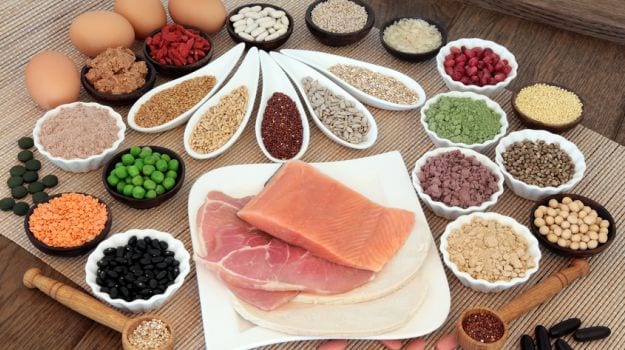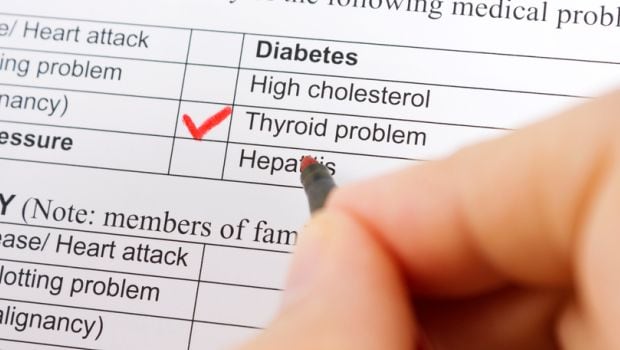World Thyroid Day is commemorated every year on 25th May globally by the American Thyroid Association (ATA) along with other International thyroid societies. Thyroid is an important gland found at the base of the neck that produces, stores and releases two important hormones which are Triiodothyronine (T3) and Thyroxine (T4). The thyroid gland is able to carry out its functions with the help of iodine derived from the food we eat. Therefore, our diet plays an important role in the risk of developing thyroid problems and also managing them. The two most common types pf thyroid disorders are hypothyroidism (underproduction of hormones) and hyperthyroidism (overproduction of hormones). The symptoms and effects of both differ and so does the treatment.
What to EatTo being with, Macrobiotic Nutritionist and Health Practitioner, Shilpa Arora talks about the importance of Iodine in our diet. "Iodine is a trace mineral that plays a critical role in the formation of the primary thyroid hormone thyroxine. On the other hand, excess iodine can also cause goiter. Prevent iodine deficiency by choosing to eat the right amounts of iodine rich foods such as seaweeds, iodized salt and seafood," she says.UNICEF recommends the following daily amounts of iodized salt:
(Also read: The Most Common Symptoms of Thyroid) World Thyroid Day: Consume protein-rich foods as protein transports the thyroid hormones to the tissues
World Thyroid Day: Consume protein-rich foods as protein transports the thyroid hormones to the tissues
What to AvoidYou should avoid soy and soy related products such as tofu, soy milk and soy granules as soy tends to impede the cell receptors and disturbs the entire thyroid function. Also, studies have shown that frequent insulin spikes can damage the thyroid gland. Sugar spikes cause the adrenal glands to secrete excess cortisol which suppresses the pituitary function and that can affect the thyroid gland.;Bangalore-based Nutrition and Weight Management Expert, Dr. Shalini Manglani throws light on the effects of goitrogens that are chemical substances which can prevent the absorption of iodine by the body. “Foods like cabbage, cauliflower, Brussels sprouts, broccoli, and uncooked bhindi should be avoided.Also, limited use of mustard greens, spinach and lettuce is recommended," she says. All kinds of processed foods, artificial sweeteners and packaged foods with preservatives and additives are a strict no-no.(Also read: Yoga for Thyroid - 6 Poses That Can Help) World Thyroid Day: processed foods, artificial sweeteners and packaged foods with preservatives are a strict no-no
World Thyroid Day: processed foods, artificial sweeteners and packaged foods with preservatives are a strict no-no
These simple steps can make the management and control of thyroid disorders easier and at the same time make the treatment more effective.
Here are some general diet rules that you ca include in your daily routine to heal thyroid disorders and improve thyroid functions.
What to EatTo being with, Macrobiotic Nutritionist and Health Practitioner, Shilpa Arora talks about the importance of Iodine in our diet. "Iodine is a trace mineral that plays a critical role in the formation of the primary thyroid hormone thyroxine. On the other hand, excess iodine can also cause goiter. Prevent iodine deficiency by choosing to eat the right amounts of iodine rich foods such as seaweeds, iodized salt and seafood," she says.UNICEF recommends the following daily amounts of iodized salt:
- Age 0-7 years - 90 micrograms (mcg)
- Age 7-12 years - 120 mcg
- Older than 12 years - 150 mcg
- Pregnant and lactating women - 200
(Also read: The Most Common Symptoms of Thyroid)

What to AvoidYou should avoid soy and soy related products such as tofu, soy milk and soy granules as soy tends to impede the cell receptors and disturbs the entire thyroid function. Also, studies have shown that frequent insulin spikes can damage the thyroid gland. Sugar spikes cause the adrenal glands to secrete excess cortisol which suppresses the pituitary function and that can affect the thyroid gland.;Bangalore-based Nutrition and Weight Management Expert, Dr. Shalini Manglani throws light on the effects of goitrogens that are chemical substances which can prevent the absorption of iodine by the body. “Foods like cabbage, cauliflower, Brussels sprouts, broccoli, and uncooked bhindi should be avoided.Also, limited use of mustard greens, spinach and lettuce is recommended," she says. All kinds of processed foods, artificial sweeteners and packaged foods with preservatives and additives are a strict no-no.(Also read: Yoga for Thyroid - 6 Poses That Can Help)

These simple steps can make the management and control of thyroid disorders easier and at the same time make the treatment more effective.
Advertisement






